Rethinking Highlights:
Event Descriptions Pt.2
The blog post below with featuring some of my favourite event descriptions that I drafted for Rethinking. Ranging from their varying levels of seriousness, humour, length, etc; all of these descriptions stand out to me for one reason and one reason only:
how much I enjoyed writing them! :)
Hope you enjoy these as much as I do.
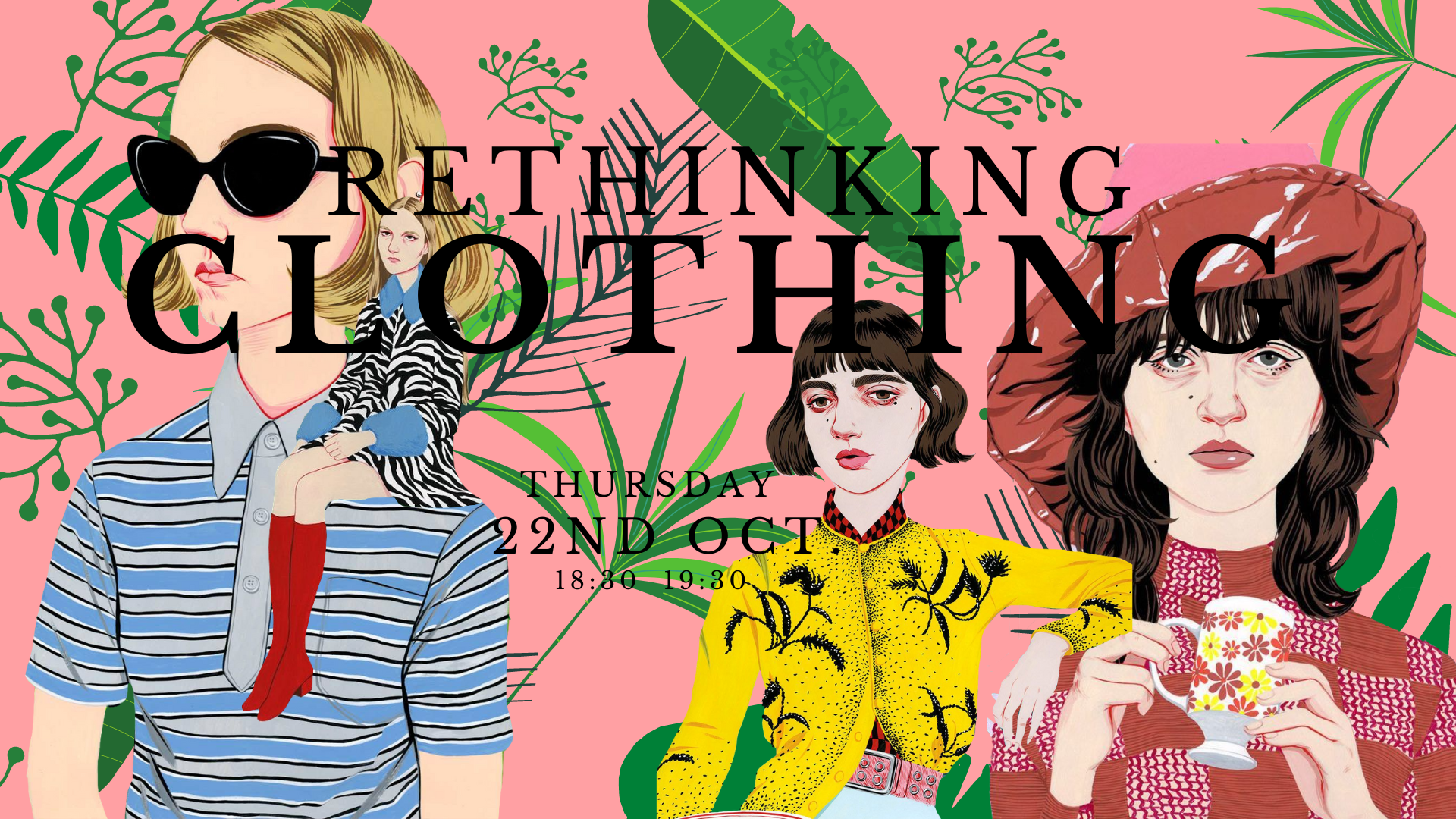
Rethinking Clothing
Carrie Bradshaw once said “I like my money where I can see it: hanging in my closet!”
Clothing. Fashion. In style. Out of style. We love to see them on others, but most of all we love to own them. Clothes make us feel good, because they make us look good. The right shoes can make you walk into a room like you own it; while the wrong ones have the ability to ruin an entire outfit.
Fashion is fun and exciting but there’s also a dark side to it…
The world of clothing is not such an ethical one. With issues such as fast fashion, mass production and sweat-shops; we must ask ourselves how much are our clothes REALLY worth? Is this why thrifting has become so popular in recent years?
Clothes are a way to express yourself without words, but wouldn’t this mean that clothes are also a way to make people perceive you differently than who you are? Does clothing encourage the permanence of stereotypes? We buy clothes because we want to fit in, but where is it that we want to fit in?
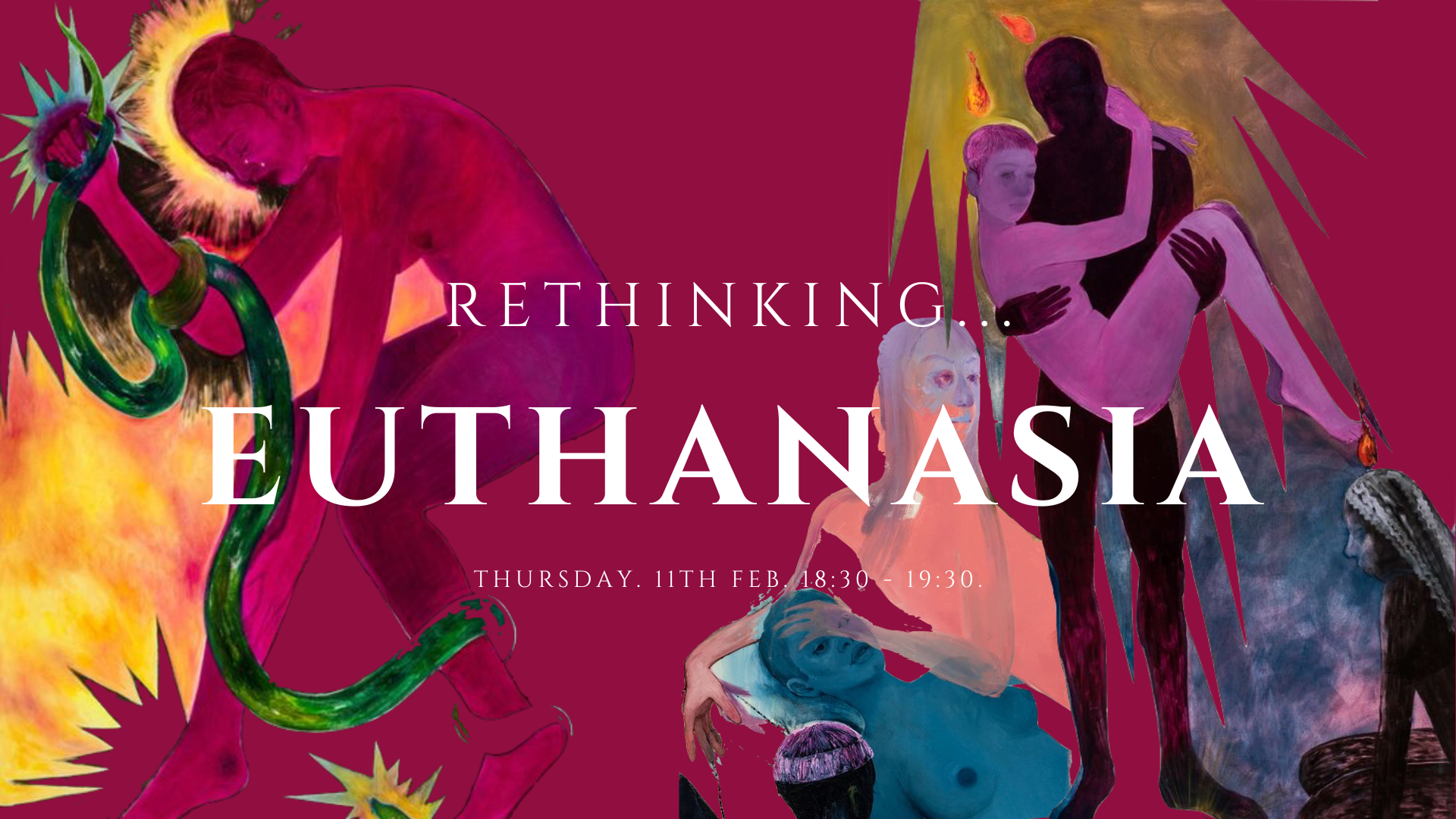
Rethinking Euthanasia
We are led to believe that our lives are in our own hands almost from the moment we conceive self-awareness. That we may make do of it as we please. Yet if we own it, our very ability to take it away is taken from us. We have no say in reflecting on whether our own life is worth living.
Most of the time.
Ones who are suffering terminal illness for instance may choose to do so but at times this leaves the conditions of sufficient suffering vague. Is it only physical? It may seem reductive towards someone's emotive experience as well as their ownership of life.
Though, is truly the saying, "All life is worth living" a universal code sent down by some transcendent being? Suffering is temporary unless that suffereing leads to death, right?
Golly gee, there's nothing else to do but to talk about it incessantly as always this Thursday at 1830!
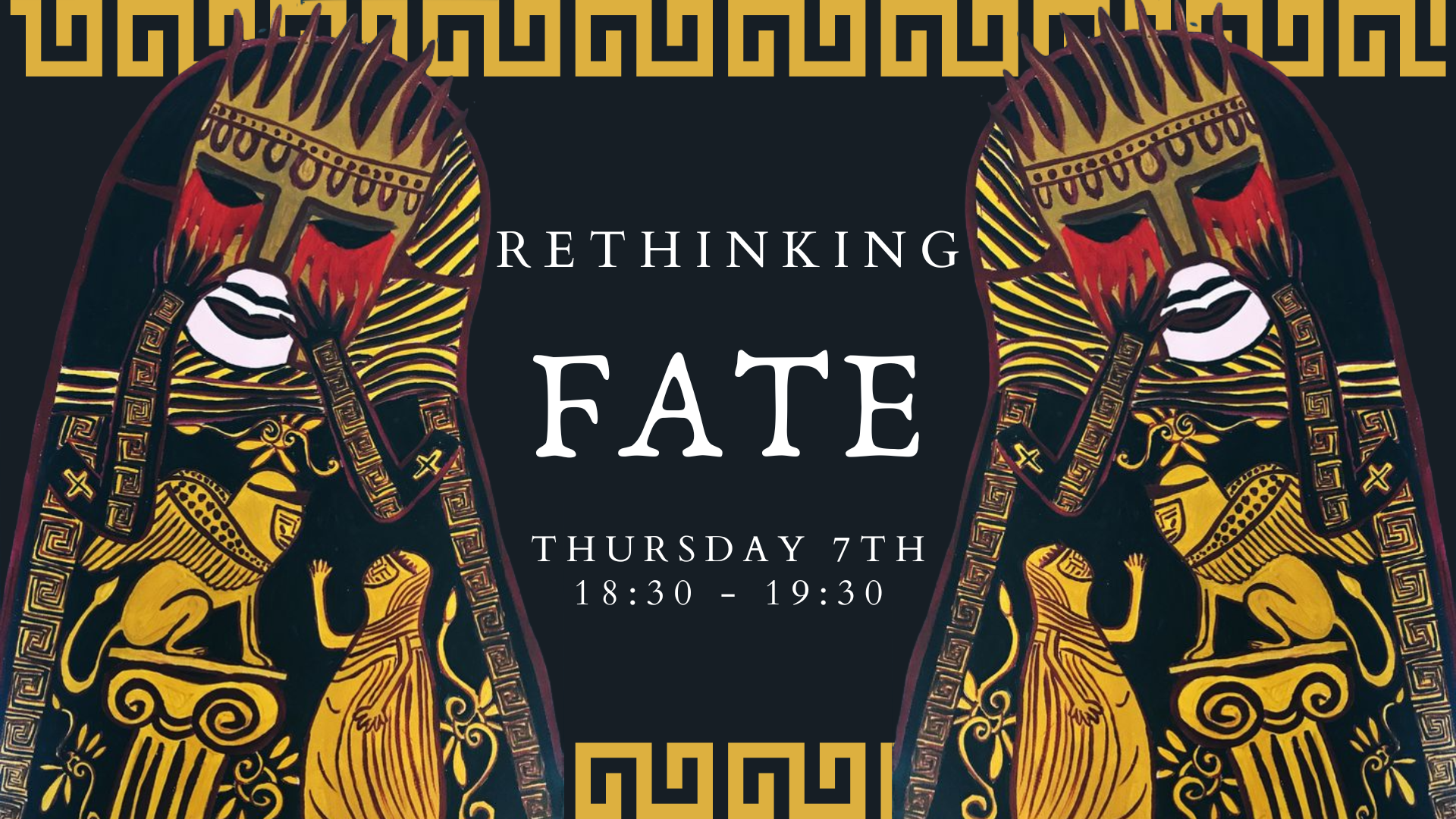
Rethinking Fate
No one does “fate” better than the Greeks - personified by three weaving sisters, goddesses who assign individual destinies to mortals at birth.
Ancient Greek culture was focused on the controls of destiny and judged the acceptance of fate as heroic; in fact, those who fought the will of fate were considered cowardly fools - a list that includes Paris Prince of Troy and Oedipus Rex and his father Laius; or even the great king of the Titans, Cronus, who ate his children out of fear of being usurped - spoiler alert: they all met their fate in the end.
The Greeks believed that it was an honourable duty of man to accept whatever fate was dealt to him. But these stories and beliefs concern themselves with deeper questions, far removed from those of acceptance or obedience to a preordained destiny.
So that brings us to the question of whether fate is truly definite or is it flexible. Do mortals and immortals have the ability to change a predetermined destiny? And something else to contemplate would be, does man truly have free will?
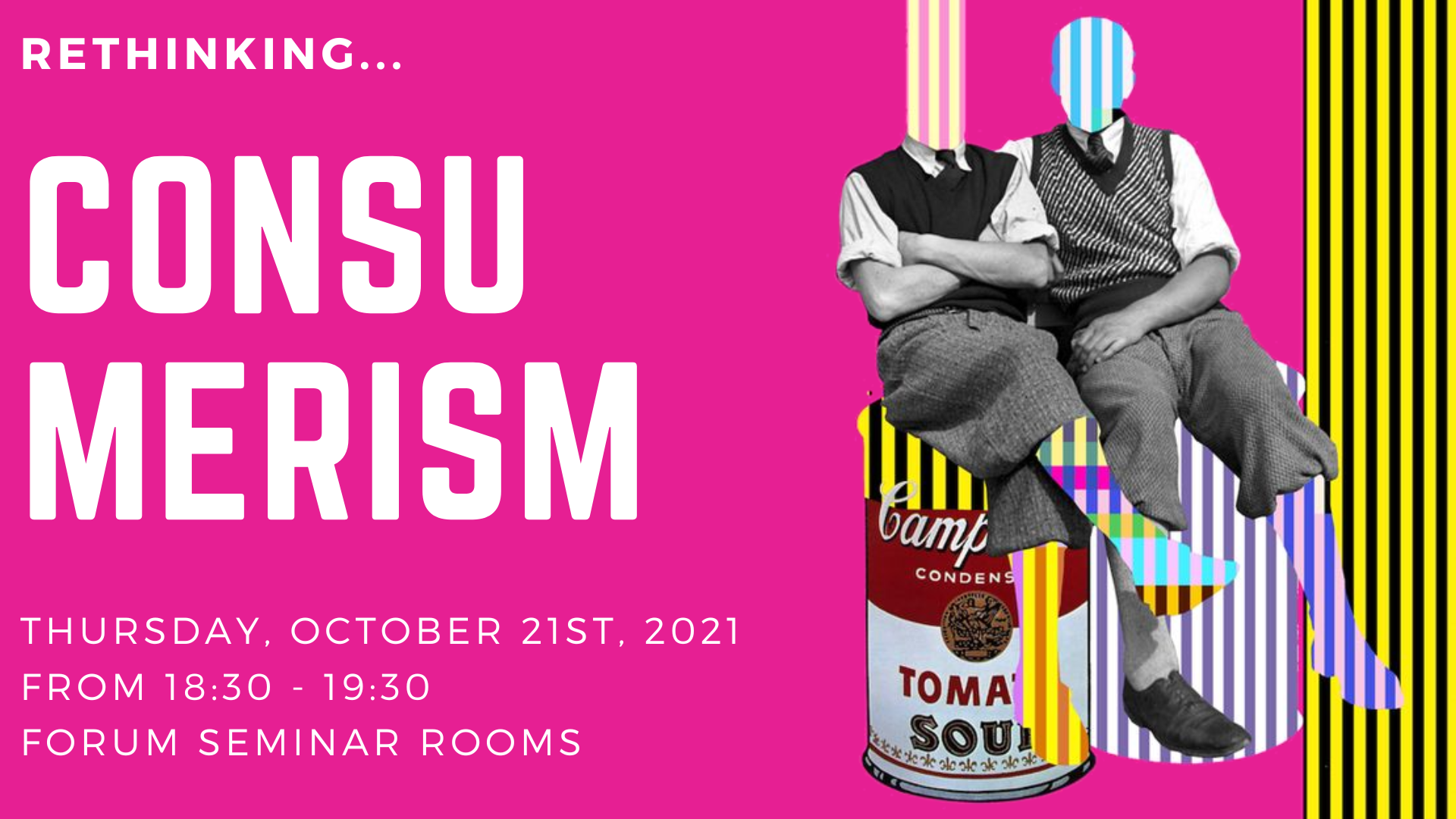
Rethinking Consumerism
How much of you is you and how much is a collection of products and brands merged into an identity?
Consumerism is something that pervades our everyday lives to the point where considering our usage of products in everyday life can be alarming. Due to the all-encompassing nature of consumerism within our lives, many warn against the dangers of superficial consumerism as well as the insurmountable environmental damage. Is having money all it takes to craft a unique personality?
Adorno and Horkheimer argue that “Fun is a medicinal bath. The pleasure industry never fails to prescribe it”, suggesting that the structure of our society is one built around the notions of consumption. Therefore if even the entertainment we consume is tainted with capitalist consumption - how much of this are we meant to resist?
Or, in spite of Adorno and Horkheimer’s reductionist argument, some acts of creation are acts of defiance that serve to educate and fuel an anti-consumerist agenda. The influence of film, tv, and literature on humanity is a fascinating and powerful tool, often toeing the line between falling into consumerism itself or warning against the action.
Must we spend money to make money?
How much is the action of consumption woven into our lives and can/ should it be undone?
Given the entanglement of consumerism and the human condition come along on Thursday at 18:30 to have your say on the matter!
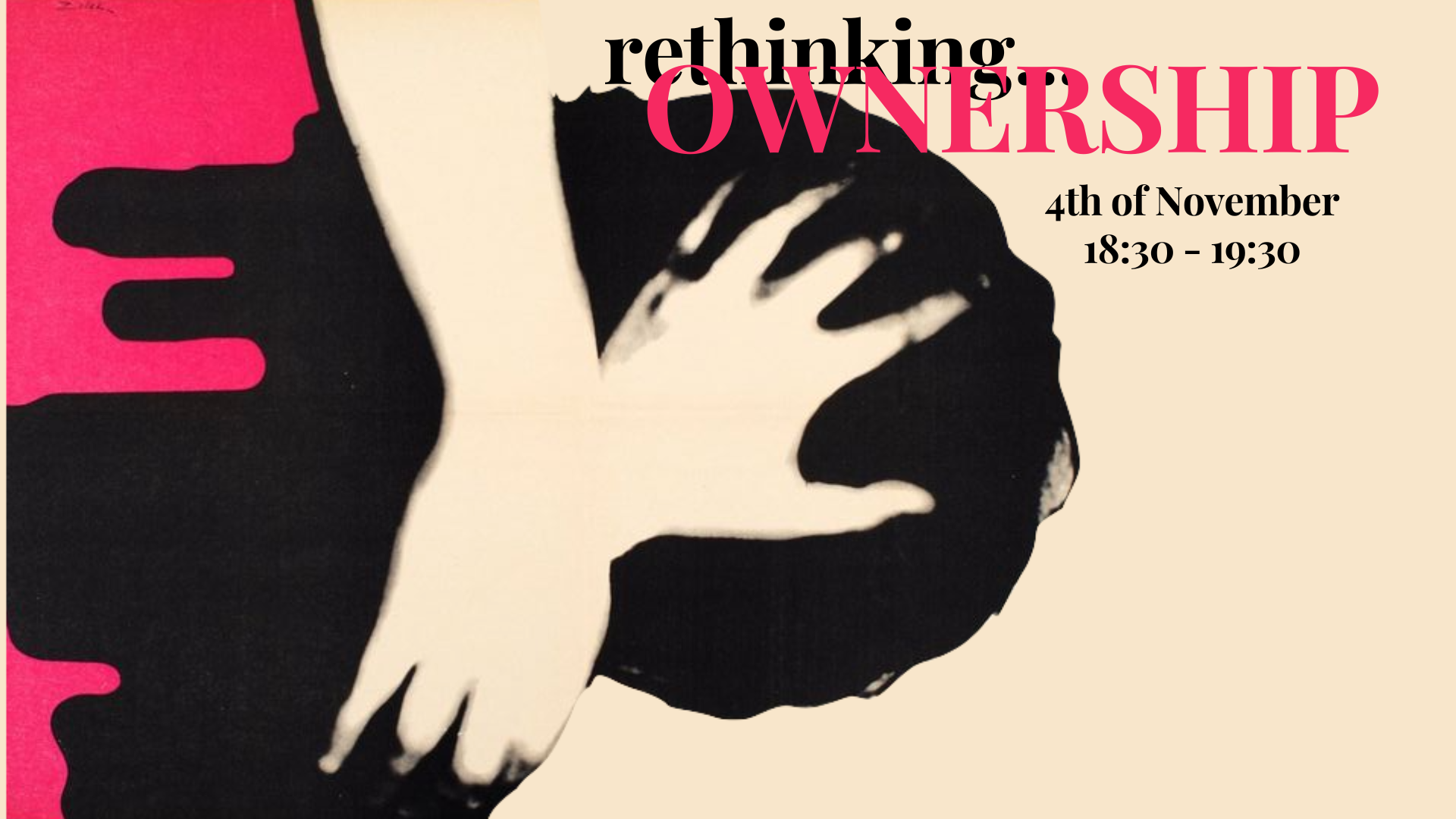
Rethinking Ownerhsip
Ownership is the legal right to possess something. For example, the total body of rights to use and enjoy property, to pass it on to someone else as an inheritance, or to convey it by sale. Or in other cases, ownership is a concept that protects an artist, creator, etc. against plagiarism or fake products.
The general feel in today's society is that everything is somehow copyrighted or property of someone. Some would argue that this is taken to the point where it hinders creativity and makes it much more difficult to innovate. Ownership is also the belief that just because you created/thought of something then you should have complete and total control over every aspect of that thing, object, or idea.
But ownership is not that simple, and it bleeds into many other areas of life; from possessing property, to making a contract, to have a deal, our pets, or even to getting married or divorced - ownership plays a part.
How has ownership changed in a society so dominated by fake news? In a digitalized world where plagiarism and dupes are so accessible? Or also, in which ways have ownership remained the same as in the past?
Why is ownership so important to humans? Does it have something to do with a sense of freedom, power, or possibly needing to be in control? What does it mean to “own” something? And can you ever truly be an “owner”?




